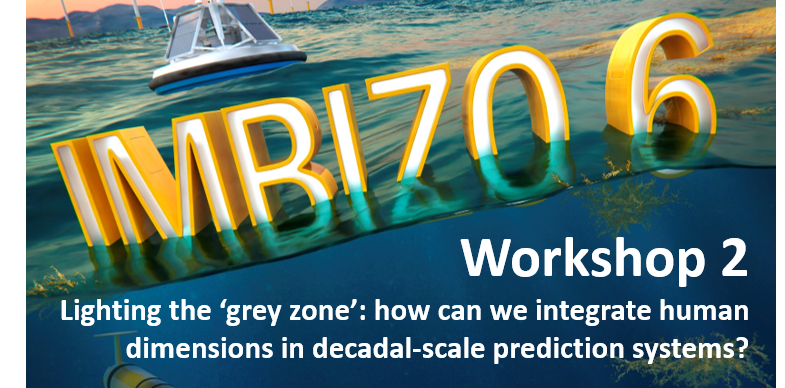
Workshop 2: Lighting the 'grey zone': how can we integrate human dimensions in decadal-scale prediction systems?
Co-conveners: Marion Gehlen (France), Désirée Tommasi (USA), Jess Melbourne-Thomas (Australia)
IMBIZO 6 Recordings: IMECaN Event | Plenary and Keynote | Workshop 1 | Workshop 2 | Workshop 3
Keynote Speaker: Inna Senina (France)
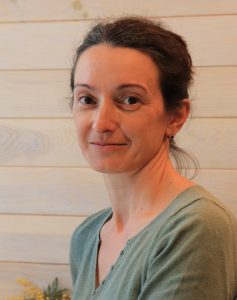
Inna will give the keynote talk on the impact of climate change on tuna fisheries and related implications for the economy of Pacific small island developing states.
Inna is a research engineer at French private company CLS, a subsidiary of French Space Agency CNES. Holding a PhD in applied mathematics, Inna has 20 years of experience in modelling of complex spatio-temporal dynamics of biological populations. Her primary area of focus is developing the quantitative models based on mechanistic description of animal movement. Conducting the development and building the applications of a spatially explicit numerical model SEAPODYM for many top predator species under the tight coupling of the model predictions to observations, she contributes to providing the scientific advice for the management of oceanic fisheries in collaboration with the Secretariat of the Pacific Community (SPC).
Her modelling research aims at estimating the response of fish populations to exploitation at the regional and national levels; understanding the impacts of environmental variability and climate change on fish stock dynamics; evaluating the efficacy of spatial planning measures; estimating the parameters of movement dynamics of tuna populations. Inna is a co-author of 35 scientific peer-reviewed articles.
Invited Speakers
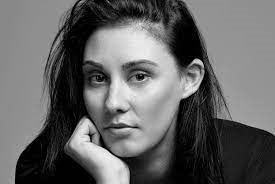
Mibu Fischer, Australia
Mibu is a marine ethnoecologist with a passion for keeping ocean ecosystems thriving for future generations. She researches sustainable marine resources in Australia and in the South Pacific.
More details to follow soon!
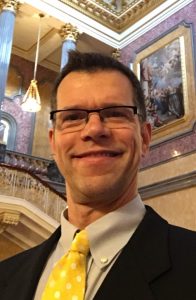
Alan Haynie, NOAA Fisheries’ Alaska Fisheries Science Center
Alan Haynie is an economist at NOAA Fisheries’ Alaska Fisheries Science Center in Seattle. Alan has a PhD in Economics from the University of Washington and an undergraduate degree from Stanford University. Alan’s research includes the analysis of fisheries under changing ecosystems, climate, markets, and management. Alan’s climate-related work includes serving as a PI in the Bering Sea Integrated Ecosystem Research Program, the Alaska Climate Integrated Modeling (ACLIM) Project, and Gulf of Alaska Climate Integrated Modeling Project. Alan was a co-author of the National Climate Assessment Oceans Chapter and the Alaska Regional Action Plan (RAP), and is a member of the ICES/PICES Strategic Initiative on Climate Change. Alan leads NOAA’s spatial economics toolbox for fisheries (FishSET) and other research interests include bycatch reduction incentives, the evaluation of spatial closures, the identification of unintended consequences of marine reserves, and optimal science research spending. Alan is a Chair of the ICES Strategic Initiative on Human Dimensions (SIHD) and is part of the NOAA Integrated Ecosystem Assessment (IEA) team. Alan was a recipient of the Presidential Early Career Award for Scientists and Engineers (PECASE), is an affiliate faculty member at the University of Washington and the University of Alaska Fairbanks, and has supervised numerous graduate students and post-docs. Alan loves reading, cross-country skiing, paddle boarding, long walks, and travel.
Talk Title: Socioeconomic Scenarios in the Alaska Climate Integrated Modeling (ACLIM) Project
Alan C. Haynie, Amanda Faig, Kirstin Holsman, Anne Hollowed, Stephen Kasperski, Jonathan Reum, Andy Whitehouse
The Alaska Climate Integrated Modeling (ACLIM) project is an interdisciplinary effort to examine how predicted warming may impact the Bering Sea ecosystem – and to ensure that the management system is as prepared as possible for change (Hollowed et al., 2020). ACLIM integrates emissions scenarios with a suite of biological models – ranging from climate-enhanced single-species models to spatial ecosystem models. Each model includes different levels of ecosystem and fishing complexity and, which lets us examine the interaction of sources of climatic and biological variability, change, and uncertainty and how current and potential management measures influence the system.
Central to projecting how future warming may affect the ecosystem and fisheries is having realistic catch projections. Realized catch is a result not just of the allowable biological catch (ABC) of each species, but the total allowable catch (TAC) allocated to each species under the ecosystem cap and to the harvest of each species given those TACs. For many species, catch is constrained not by the ABC or TAC, but by bycatch limitations or the lack of profitable targeting opportunities, given prices, costs, and management measures.
Here we discuss the ATTACH model and socioeconomic scenarios that have been developed and new scenarios that are in development with stakeholder input. ATTACH retrospectively models how the North Pacific Fishery Management Council sets the TAC and how the fishery has been able harvest different species. ATTACH is then coupled with emissions scenarios and ecosystem models to project harvest. We show results of ATTACH coupled with an existing suite of socioeconomic scenarios and then the current process of developing expanded socioeconomic scenarios that will make the management system more resilient in the face of future change.
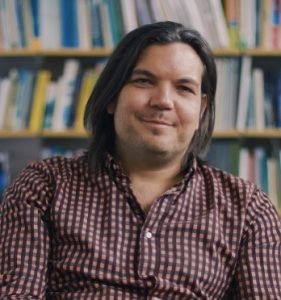
Dr. Andrew Merrie, Sweden
Originally from New Zealand, Andrew is a Research Liaison Officer at the Stockholm Resilience Centre, Stockholm University. His PhD project focused on governance of the future ocean with a particular focus on the high seas, the vast areas of the global ocean that remain a global commons. During his PhD he developed the Radical Ocean Futures project, using Science Fiction Prototyping to create narrative scenarios of the future ocean. This project has been featured in Nature, WIRED and PNAS and the project artwork was exhibited in the UN General Assembly entrance hall during the UN Ocean Conference in 2017. Andrew’s research continues to focus on the future ocean, emerging technologies, understanding how social-ecological change might shape the future, and how to build capacity for people and organisations to anticipate and respond to a diverse range of possible futures. His most recent co-authored paper focused on narrative scenarios of future fisheries conflict.
Andrew’s presentation at IMBIZO6 will address: Narratives for sustainable ocean futures – A science fiction prototyping approach to imagining our future ocean. He will share his work on creating narrative scenarios of the future ocean, the Science Fiction Prototyping approach and how using imagination and storytelling as scenario tools can generate novel insights and create impact.
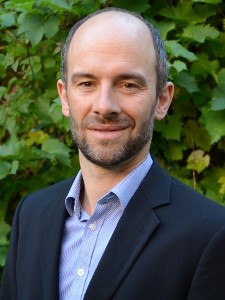
Mark Payne, Denmark
Mark is a climate scientist based at the Danish Meteorological Institute in Copenhagen, Denmark. His work focuses on how climate data can be used to inform responses to the climate crisis through the development of so-called “climate services”. He has previously pioneered the development of climate services in the ocean, working closely with stakeholders to develop forecasts of the distribution and abundance of key fish species in Europe. He contributed to the IPCC report on climate impacts on the oceans and is currently the scientific leader of the Danish National Climate Atlas, Klimaatlas.
Talk Title: Marine Ecological Forecasts – A new tool for climate adaptation and sustainable management of the oceans
Abstract: Recent advances in oceanographic modelling now allow us to forecast the state of the ocean years and in some cases even up to a decade in advance. Such forecasts are potentially of great value to society, as they span the gap between the short (days-to-weeks) time scales of weather forecasts and the long (century) time-scales of climate projections: importantly, these are also the time-scales where most users make important decisions. However, a translation step is required to convert the outputs from these models, which are typically physical variables, into variables that are directly relevant to end-users (e.g. distribution of fish stocks). Here I describe the work being done to generate predictions of fish distributions on this 1-10 year time-scale, and thereby develop so-called “marine ecological climate services”. I will present several case studies detailing this work and describe how this information can be used both in the sustainable management of the oceans, and as a tool to aid in adapting to a changing and variable climate.
About this workshop
The world-wide development of the blue economy will likely result in an ever more intense penetration of human activities into the marine realm. Marine ecosystems are already exposed to unprecedented levels of pollution and resource extraction, as well as heavily impacted by climate change. There is thus an urgent need for science-based approaches to be put in place for the sustainable management of marine resources and ecosystems while ensuring lasting ocean-based benefits to society. Time scales from seasonal to decadal coincide with decisions of particular relevance to the adjustment of practices and infrastructure to ensure long-term sustainability. These time scales are targeted by decadal predictions, a rapidly developing field with an increasing number of applications for the management of living marine resources. The transition towards the sustainable management of marine ecosystems should, however, not rely only on the development of coupled physical-ecological prediction systems, but should ideally integrate humanity. It calls for the development of socio-ecological model systems with the human dimension as a system component and actor of governance.
This workshop aims to bring together scientists from across different disciplines (natural sciences, social science, psychology, economics and policy) sharing a common interest in tackling the challenge of expanding decadal prediction systems to include the socio-ecological dimension. The workshop is structured around three pillars: (1) modelling the natural system (focus on decadal predictions), (2) integrated modelling for marine socio-ecological systems and (3) scenarios used in both modelling approaches. It will assess present capabilities and identify major blockages, and suggest strategies for the successful integration of the human dimension into decadal prediction systems.
Objective:
Define best practices/standards for integrating the human dimension into decadal prediction systems for fisheries and aquaculture management.
While human activity is a major driver of climate and environmental changes in the Anthropocene, it is still absent from most model systems. With model systems increasingly evolving into decision support tools, next-generation decadal prediction systems should integrate the human dimension. Because the ‘Lighting the Grey Zone’ workshop targets participants from different disciplines, it is important to create a common language, including metrics and indicators used by different science communities. The “Grey Zone” refers to the decadal prediction horizon and tackling it requires particular modelling approaches. An introduction to modelling techniques and related issues will be part of the workshop. The technical introduction will not be limited to the modelling of physical/chemical/biological systems, but will also address the human dimension. Specific topics to be discussed in the workshop include:
- How to deal with the mismatch of scales between the global scale of the Earth System Models used to generate decadal predictions and the regional scale required by decision makers and stakeholders for actionable predictions? Again, both the technical climate science side of this question (downscaling), and the requirements for regional-specificity and modelling of the human dimension will be discussed.
- How can human behaviour be integrated into decadal prediction systems based on ensemble methods and providing probabilistic information? Decision makers and the general public need tools (and education) to understand and use this information and its inherent uncertainty.
Outcomes and expected impact:
The workshop will suggest a strategy and produce guidelines on how to integrate human dimensions with coupled physical-biogeochemical/ecological prediction systems. It will also consider different modelling approaches (qualitative, participatory, quantitative, scenario-based) to achieve this. These will feed into a perspective paper, the key output of the workshop. The strategy will be structured around a particular topic, such as the ocean and food security, but with broader relevance to modelling the grey zone to support decision-making for marine social-ecological systems.